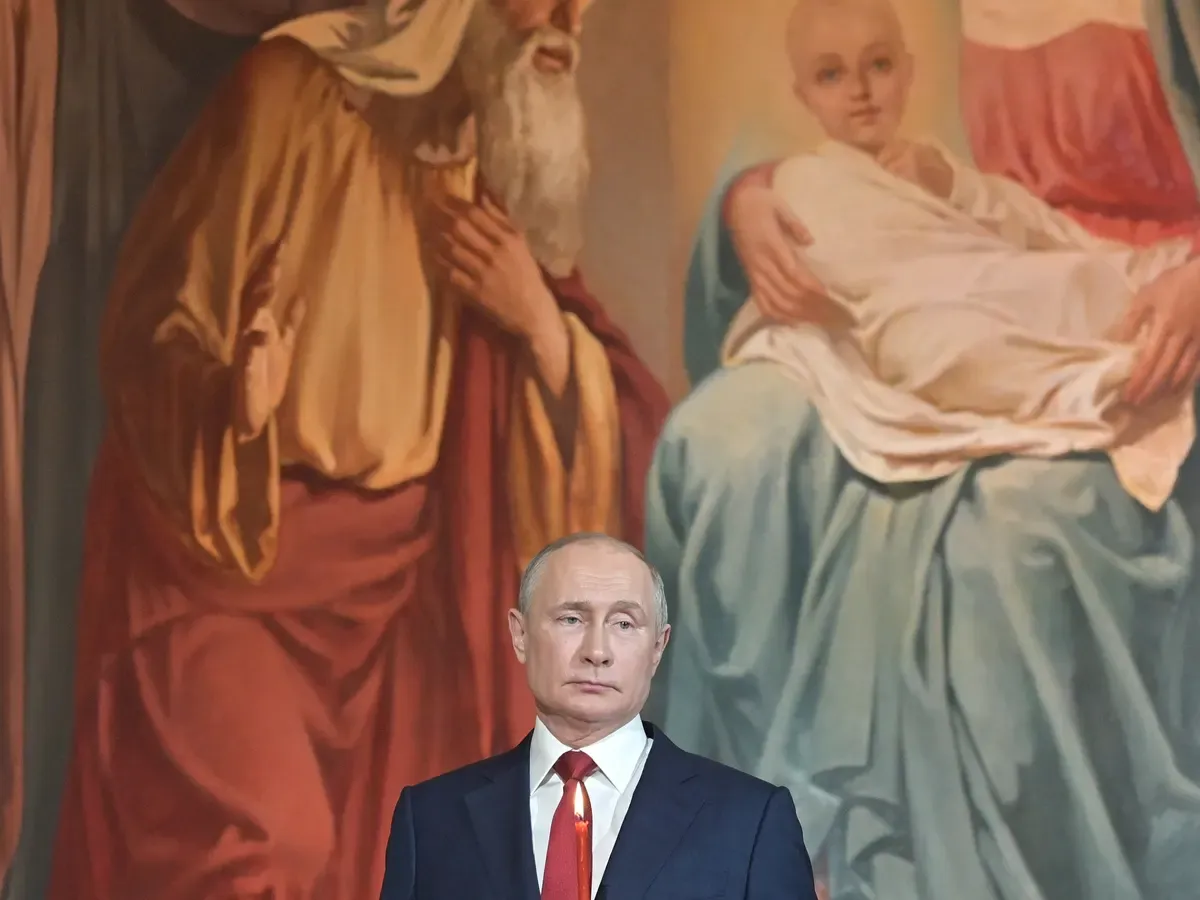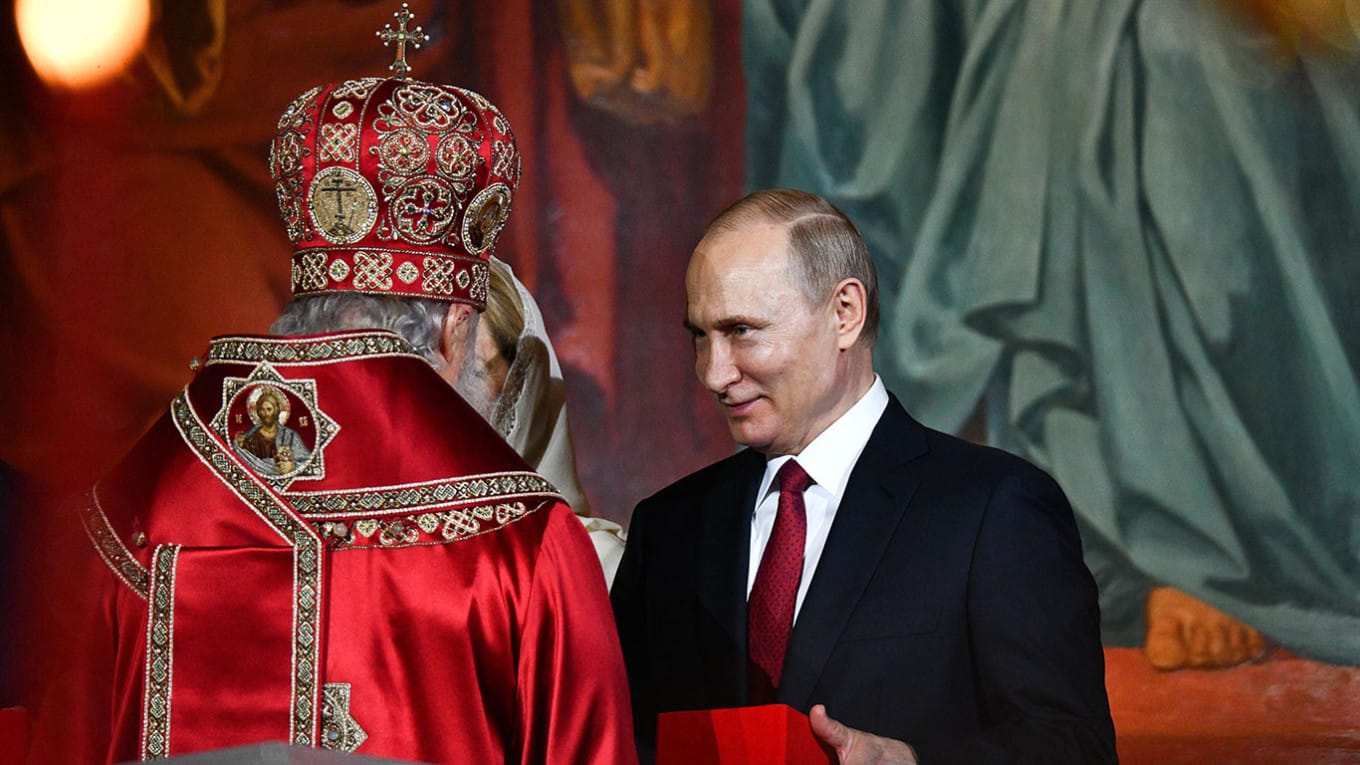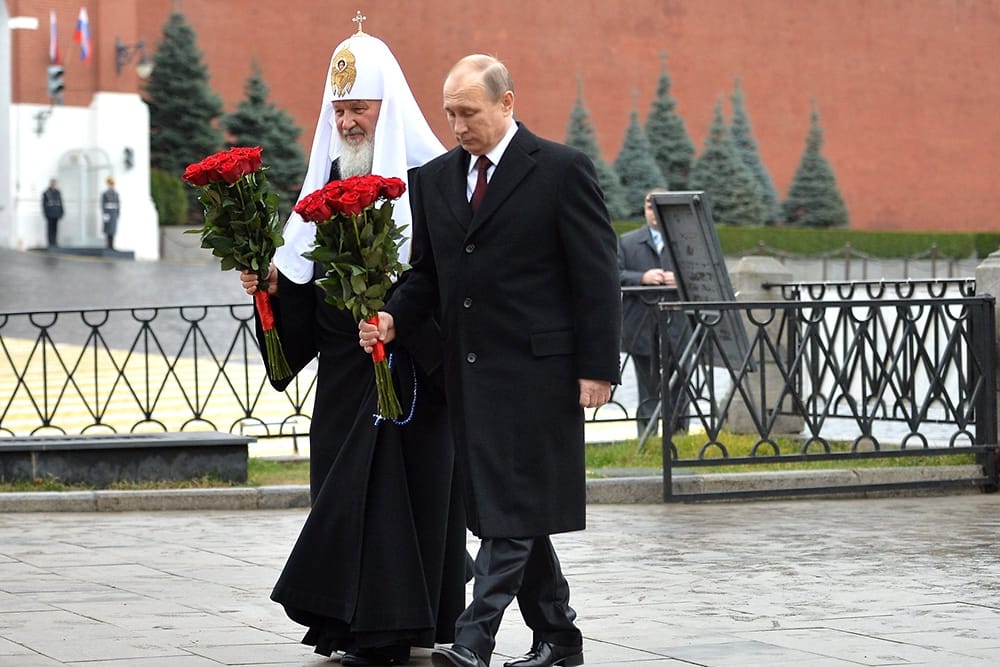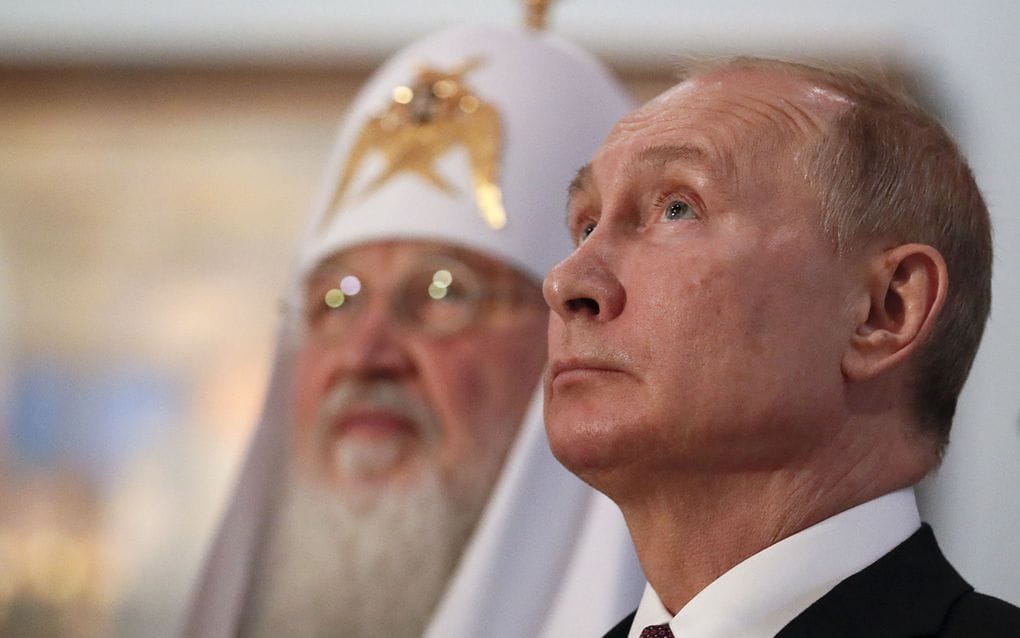On Sunday, Russian State TV Channel 1 broadcasted footage of Russian President Vladimir Putin attending a church service at his Novo-Ogaryevo residency compound to pay homage to the victims of a terrorist attack at a Moscow concert hall. During the service, Putin was depicted lighting a candle, making the sign of the cross, and bowing in reverence.
This isn't the first instance where Putin has utilized religious ceremonies to convey a spiritual image, particularly during moments of national crisis. The question of whether Putin genuinely embraces faith or strategically exploits religion to further his personal and political goals is complex, diverging from portrayals in Western media.
To grasp Putin's religious affiliation and its significance in Russia's geopolitical landscape, it's essential to delve into his family background and Russia's religious heritage. In his official autobiography, "First Person Conversations with Vladimir Putin (Ot Pervogo Litsa)," Putin disclosed an anecdote about his mother, a devout Russian Orthodox Christian, clandestinely baptizing him as an infant without his atheist father's knowledge. Despite this, Putin didn't have a devout upbringing, refraining from church attendance or wearing religious symbols until 1993. At his mother's behest, he carried his baptismal cross to Israel during an official visit, having it blessed at the Tomb of the Lord, a narrative whose authenticity remains unverified.

The priest who baptized Putin at the Transfiguration Cathedral in St. Petersburg shortly after his birth prophesied that St. Vladimir's icon would become significant in his life. St. Vladimir, a renowned Russian ruler, played a pivotal role in Russia's Christianization in 988, baptizing numerous inhabitants of Kievan Rus', an ancient realm encompassing present-day Russia, Ukraine, and Belarus. The connection to St. Vladimir symbolizes Putin's association with Russia's Christian heritage, albeit its political connotations remain subject to interpretation.
Putin's adherence to Orthodox Christianity and his profound grasp of history have profoundly influenced his worldview and foreign policy objectives, which are rooted in a desire to restore Russia to its Imperial past. Orthodox Christianity served as a cornerstone of Russian culture and identity for centuries, until the Bolshevik Revolution in 1917 disrupted its central role. Historically, the Russian Orthodox Church maintained a close symbiotic relationship with the state, wherein the Czar was perceived as a divinely appointed ruler bestowed with authority directly from God to govern the Orthodox faithful.

Upon coronation, the Czar assumed the role of the highest representative of the Russian Orthodox Church and the Defender of the Faith, signifying the union between the monarchy and its people. In 2012, Patriarch Kirill lauded Putin's leadership during his twelve-year tenure as president and prime minister, characterizing it as a "miracle of God." Kirill attributed Russia's emergence from the tumultuous 1990s and early 2000s to divine intervention, crediting Putin for playing a pivotal role in rectifying the nation's historical trajectory.
Patriarch Kirill, a staunch ally of Putin, actively supports the portrayal of Putin as a figure of saintly significance. In a notable instance in December, Putin delivered a keynote address to Russia's religious leaders, projected onto a giant TV monitor, creating the illusion of a divine presence overseeing the audience. As Putin spoke, a male choir commenced singing "To Czar Heavenly," an eighth-century prayer venerating the Holy Spirit, further enhancing the mystique surrounding Putin's leadership.

The setting for Putin's address on Russian State TV Channel 1 was carefully orchestrated to evoke spiritual imagery and religious symbolism, with elements reminiscent of Orthodox Christian iconography. Flanking the TV screen were identical images of "Savior the Miraculous," a revered icon in Orthodox Christianity. Below the screen, a grand stage-width sign adorned with golden crosses, church cupolas against a green background, and Savior icons further enhanced the religious ambiance. The stage itself bore resemblance to an iconostasis, a traditional partition found in Russian Orthodox Churches, characterized by tiers of stylized gilded icons and symbolic doors separating the sanctuary from the nave. This setup symbolizes the division between the divine realm (The Holy) and the mortal world (The Worldly).
While Western observers often interpret Putin's utilization of religion as a tool of statecraft, perceived as a means of weaponizing faith for political gain, it holds significant appeal for many Russians. Putin's efforts to re-establish the connection between Russian culture and identity with Orthodox Christianity have revitalized a sense of national pride and exceptionalism, which had waned following the loss of the Cold War and the collapse of the USSR. Similar to Americans, Russians deeply believe in the uniqueness and destiny of their nation. Putin's actions have also served to restore Russia's status as a great power, or derzhava, a position that many Russians believe is divinely ordained for leadership, particularly within the Eurasian sphere.




Member discussion: